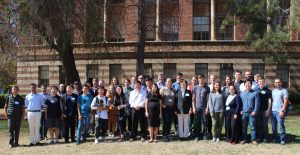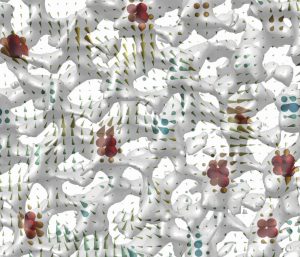 For centuries, lens-based microscopy has played an important role in the evolution of modern science and technology. In 1999, a new form of microscopy, termed coherent diffractive imaging (CDI) or lensless imaging, was demonstrated and transformed our traditional view of microscopy, in which the diffraction patterns of a non-crystalline specimen or a nanocrystal were measured and then directly phased to obtain high-resolution images. The well-known phase problem (that is, how to recover a function from the magnitude of its Fourier transform) was solved by combining redundant measurements with iterative algorithms. For the past twenty years, various CDI methods such as plane-wave CDI, Bragg CDI and ptychography have been broadly implemented using synchrotron radiation, X-ray free electron lasers, high harmonic generation, light and electron microscopy. The goal of this workshop is to bring together leading CDI experts, applied mathematicians, physicists, materials scientists, engineers and biologists to disseminate results, exchange ideas and debate future perspectives of this rapidly growing cross-disciplinary field. Topics to be covered, but not limited to, include: How to improve the spatial resolution of CDI to atomic and the temporal resolution to attosecond? How to achieve single-particle imaging of protein complexes at high resolution? What are the outstanding problems in phase retrieval for applied mathematicians? What research areas will benefit most from quantitative X-ray, electron and Fourier ptychography? How to push the frontier of strain imaging of materials? What new research directions are enabled by magnetic imaging using CDI methods? How to deal with big data and incorporate machine learning into CDI methods?
For centuries, lens-based microscopy has played an important role in the evolution of modern science and technology. In 1999, a new form of microscopy, termed coherent diffractive imaging (CDI) or lensless imaging, was demonstrated and transformed our traditional view of microscopy, in which the diffraction patterns of a non-crystalline specimen or a nanocrystal were measured and then directly phased to obtain high-resolution images. The well-known phase problem (that is, how to recover a function from the magnitude of its Fourier transform) was solved by combining redundant measurements with iterative algorithms. For the past twenty years, various CDI methods such as plane-wave CDI, Bragg CDI and ptychography have been broadly implemented using synchrotron radiation, X-ray free electron lasers, high harmonic generation, light and electron microscopy. The goal of this workshop is to bring together leading CDI experts, applied mathematicians, physicists, materials scientists, engineers and biologists to disseminate results, exchange ideas and debate future perspectives of this rapidly growing cross-disciplinary field. Topics to be covered, but not limited to, include: How to improve the spatial resolution of CDI to atomic and the temporal resolution to attosecond? How to achieve single-particle imaging of protein complexes at high resolution? What are the outstanding problems in phase retrieval for applied mathematicians? What research areas will benefit most from quantitative X-ray, electron and Fourier ptychography? How to push the frontier of strain imaging of materials? What new research directions are enabled by magnetic imaging using CDI methods? How to deal with big data and incorporate machine learning into CDI methods?
This workshop will include a poster session; a request for posters will be sent to registered participants in advance of the workshop.
Tetsuya Ishikawa
(RIKEN SPring-8 Center)
Jianwei (John) Miao
(University of California, Los Angeles (UCLA))
Margaret Murnane
(University of Colorado Boulder)
Stanley Osher
(University of California, Los Angeles (UCLA))
Ian Robinson
(Brookhaven National Laboratory)
Laura Waller
(University of California, Berkeley (UC Berkeley))